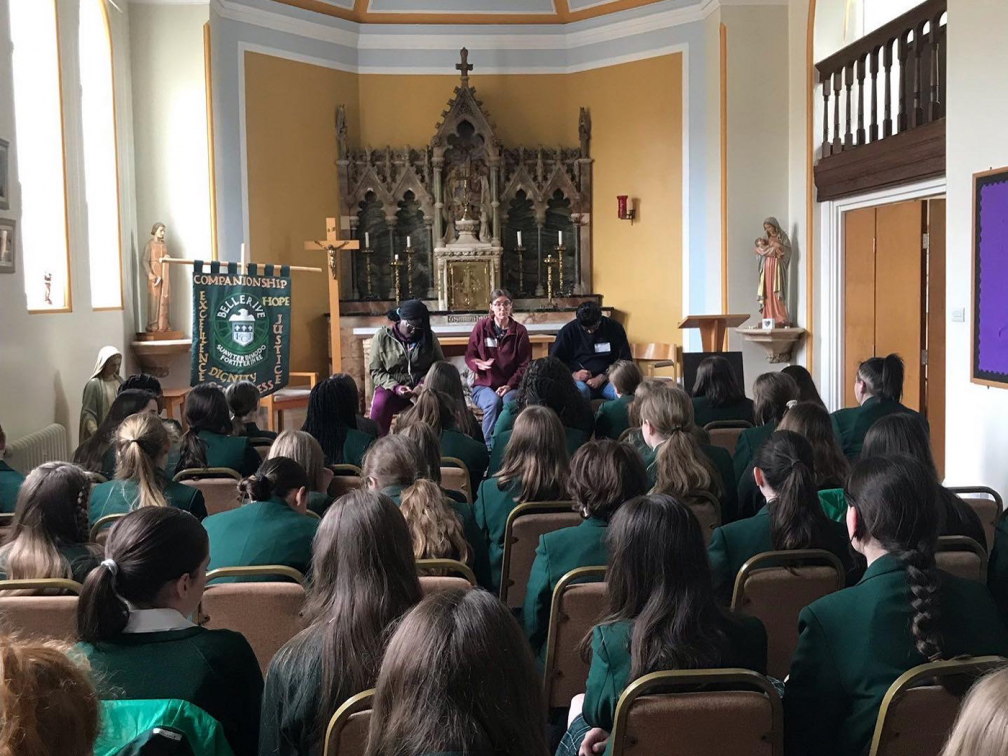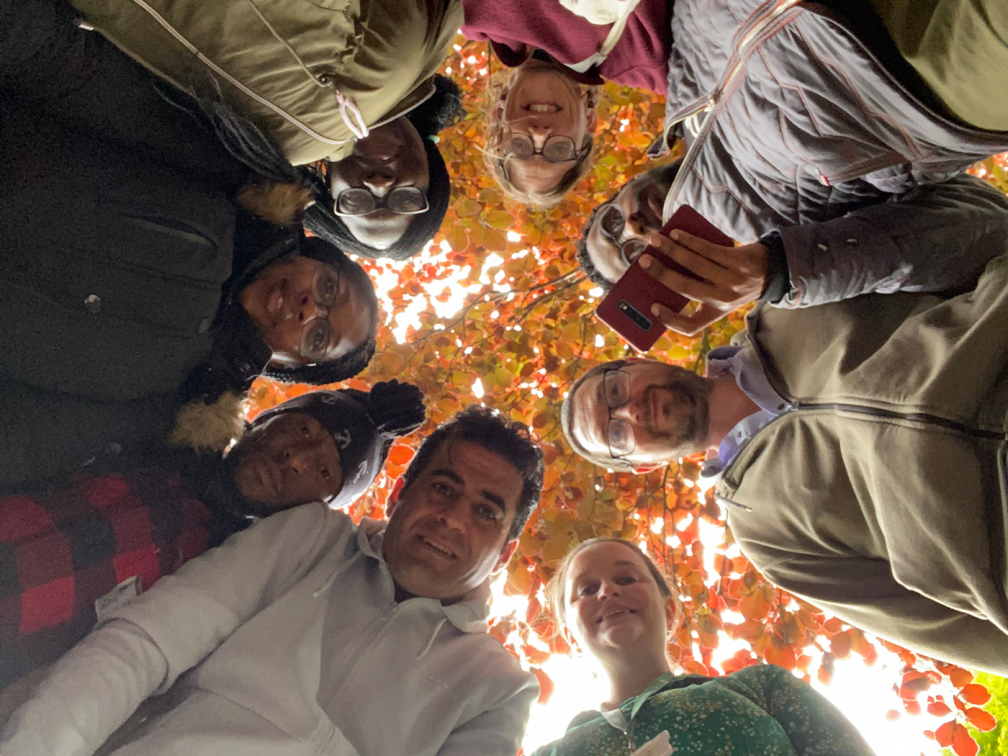Earlier this month, I had the opportunity to accompany the charity Stories of Hope and Home on one of their school visits. Stories of Hope and Home is a charity based in Birmingham that creates a space for asylum seekers and refugees seeking sanctuary in the UK to tell their stories of migration and offers an opportunity for others to hear them.
I’ve known some participants of Stories of Hope and Home since the start of my time in Birmingham, but I’ve never really felt or understood the depth of their stories until I followed them on this particular visit. I always understood that the journey coming to the UK would not have been easy and trying to rebuild a life in a different country with a different language and system had its challenges, but hearing them speak to the different student groups over and over again, it finally sank in, what these people were saying was not just a story but these were real life experiences.
Let us not underestimate the power of a story! A story can touch hearts, change a negative or incorrect perception of something or someone and open our eyes to the lived experiences of people. Stories serve a purpose as they are there to rebuttal the media’s portrayal of asylum seekers. One news piece could say “Migrants are here to take your job” but an asylum seeker would say “I’m here because I stood up for the rights of women.”
Listening to the lived experiences of refugees, asylum seekers and migrants is important because they make listeners aware of the reason why they had to flee their homeland and the challenges that follow this decision. Challenges such as the Home office hostile environment policy which is a set of measures put in place to make it hard for asylum seekers to try and settle in the UK. The anxiety of trying to find a genuine solicitor, the mental stress of having to prove to the Home Office the persecution that you have faced and why it is dangerous for you to go back to your country and the sheer volume of paperwork, is extremely stressful for those here in search of sanctuary. My heart has definitely become more receptive and sensitive to migrant stories since spending time with Stories of Hope and Home. Not to say that I was not listening prior to this experience, but there has certainly been a shift from being a passive hearer that simply listens to what’s being told, to an active one that acts upon what is heard.
This shift in my heart shows that some people will probably need constant exposure to the stories of refugees in order to gain a clearer picture and therefore a more balanced view.
This is needed especially because the media’s representation of migrants is very unfavourable and can work to counteract the stories of migrants. The media often portrays a misconstrued image of people seeking refuge as articles are titled provocatively to elicit fear in the minds of the uneducated and unexposed reader. The choice of language that they use to describe migrants such as the word “swarms”, deliberately creates a moral panic. They don’t show the plight that led them to seek safety outside of their home, but instead picture them as bogus with the ulterior motive to steal jobs, and enjoy the UK’s benefits system.
These misinterpretations create dangerous narratives and breed misconceptions that strip humanity and dignity from those fleeing persecution and seeking refuge, exacerbating their situation. This is why I believe that charities like Stories of Hope and Home are so important because they not only provide the opportunity for refugees and asylum seekers to speak for themselves which affirms their dignity, but it also works to challenge misconceptions weaved by the media. It’s like the saying, “Until the Lion learns how to write, every story will glorify the hunter”. If places like Stories of Hope and Home did not exist, the voice of the media would always take centre stage.
“But whoso hath this world’s good and seeth his brother and sister has need, and shutteth up his bowels of compassion from him, how dwelleth the love of God in him.”
When I ponder upon the poor treatment of refugees and asylum seekers by the west, my mind goes to this particular scripture from 1 John 3:17, “But whoso hath this world’s good and seeth his brother and sister has need, and shutteth up his bowels of compassion from him, how dwelleth the love of God in him?”
If we apply this scripture to the image of our world today we can identify who “…hath this world’s good” how it is being handled and how it fits in with the topic of Refugees and Asylum Seekers.
In Development Studies, the term ‘The Global North’ and ‘Global South’ is used to describe the socio-economic structure of regions. The Global South mainly refers to regions in Africa, South-east Asia and Latin America which are underdeveloped and do not hold as much wealth or global political influence for many reasons but mainly by the historic and current doings of the Global North. The Global North consists of regions in Europe, Australia and the United States of America possess a lot of wealth and in a lot of cases are light years ahead in terms of development than regions in the Global South. Therefore the countries in the Global North “… hath this world’s good” which in this case is safety and sanctuary. But the Home Office “shuts its bowels of compassion” towards our brothers and sisters that are in need of this sanctuary that our economy obtains.
The UK is the 5th wealthiest country in the world and we probably do have the resources and the time as well as the skills and knowledge to help our brothers and sisters who are in need, but instead we seem to do the opposite, by labelling them as the ‘other’ creating an enemy.
It has been proven many times by the UNHCR that the UK does not give as many asylum seekers refugee status and ‘leave to remain’ as they show in the media. In fact, developing countries are the ones that often bear the burden. But the UK are now planning on off-shoring asylum seekers to Rwanda, another economically disadvantaged country.
So I ask, is the love of God really in the hearts of world leaders, governments, policy makers and those in the Home Office?” Judging by the treatment of our brothers and sisters in need… I don’t think it is.


